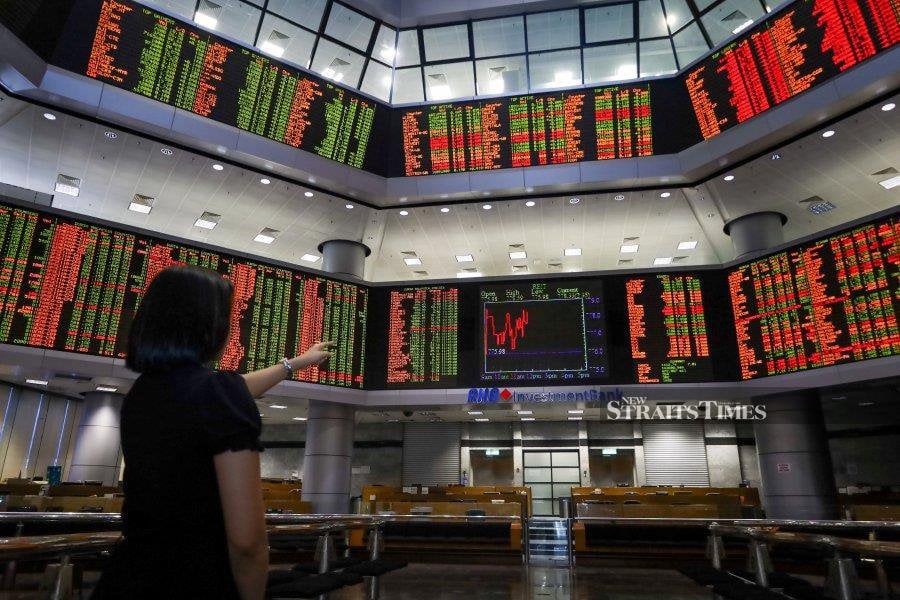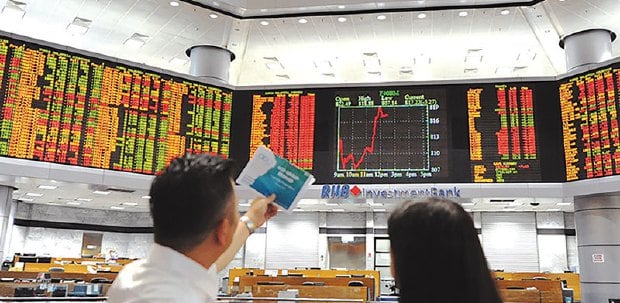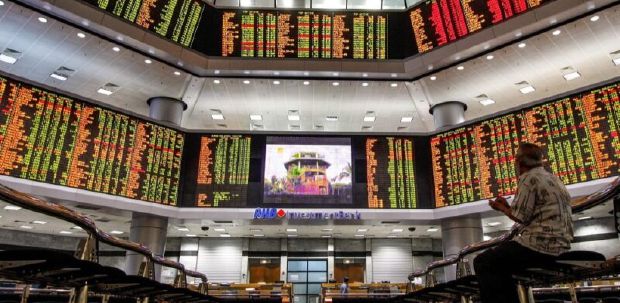KUALA LUMPUR: Bursa Malaysia opened lower, influenced by a weaker performance on Wall Street the previous night, driven by uncertainties regarding the path of United States interest rates, coupled with a resurgence in US Treasury yields.
At 9:05 am, the FTSE Bursa Malaysia KLCI (FBM KLCI) saw a drop of 2.02 points to 1,489.19, in contrast to Wednesday's closing figure of 1,491.21.
The barometre index opened 2.72 points lower at 1,488.49.
On the broader market, losers outnumbered gainers 179 to 102.
Additionally, 236 counters remained unchanged.
Turnover reached 262.19 million units, valued at RM89.78 million.
Rakuten Trade Sdn Bhd equity research vice president Thong Pak Leng mentioned that Wall Street concluded with a decline due to the release of robust Retail Sales data for December.
The data suggested a resilient economy, temporarily halting expectations for a reduction in interest rates.
"The FBM KLCI also weakened amid a broad sell-down amongst the regional markets. "Nonetheless, the local benchmark index managed to close off its intra-day low due to some bargain hunting activities."For today, we believe the index to trend within the range of between 1,490-1,500 range amid some downside bias over prevailing concerns of China and the US economic data," he added. Thong pointed out that the significant drops in small-cap stocks might impact retail involvement in the short term.
He also noted that the US 10-year yield increased to 4.10 per cent, coinciding with declines of 94 points in the DJI Average and 89 points in the Nasdaq.
In today's note, he mentioned that Hong Kong's Hang Seng Index (HSI) experienced a significant drop of 590 points, reaching its lowest level since November 2022.
This decline was attributed to concerns about China's fourth-quarter 2023 (4Q23) economic growth falling below consensus, along with a decrease in property prices.





